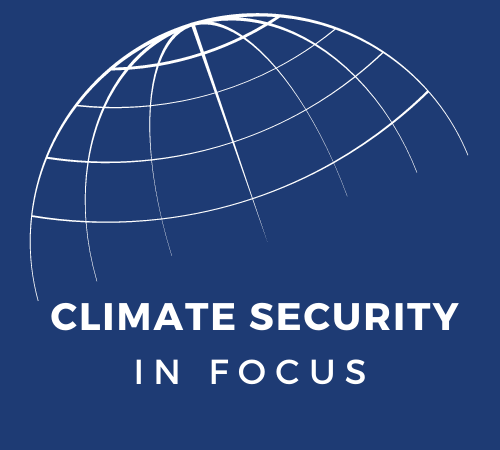
Three for Three: Climate, IUU, and October’s Federal Strategies
October is National Seafood Month, so it is somewhat fitting that three U.S. federal strategies released over the past few weeks have elevated climate change, climate security, and illegal, unreported, and unregulated (IUU) fishing further in national security discourse. As oceans are warming due to climate change, existing fish stocks are shifting and fisherman are having to fundamentally alter when, where, and how they obtain one of the world’s most important sources of high-quality protein. Distant water fleets and maritime aggression just outside exclusive economic zones (EEZ) are negatively impacting fish stocks, food security, and national security so concretely that the U.S. Coast Guard has labelled IUU fishing the world’s number 1 maritime security threat. The latest federal strategies simultaneously underscore and amplify the importance of understanding the dynamics and complexities of both climate security and IUU fishing.
The newest National Security Strategy (NSS) is consistent with the priorities listed in the anticipated National Defense Strategy, and is framed by two strategic challenges, one of which is “cop[ing] with the effects of shared challenges that cross borders.” It includes climate change and food insecurity as specific examples that are “at the very core of national and international security” and calls climate change “the greatest and potentially existential [problem] for all nations.” The NSS consistently calls out the need to “out compete” China and “constrain” Russia, across several areas, including in the transition away from fossil fuels and the enhancement of energy security. It also highlights the acute threat autocracies present to the international order and reinforces the U.S. position in “shaping the rules of the road” for institutions, norms, and standards. Furthermore, the NSS lists transnational organized crime, and specifically IUU fishing, as key areas for enhanced international collaboration. Since China is perhaps the most egregious perpetrator of IUU fishing, the already complex nature of both national security and IUU fishing is only likely to grow.
Following the creation of the (unfilled) U.S. Ambassador-at-Large for the Arctic Region position earlier this year, the U.S. released its National Strategy for the Arctic Region, which lists climate change and environmental protection as “Pillar 2” of the four “mutually reinforcing pillars” for the region. The ten-year strategy is “intended to serve as a framework to guide the U.S. government’s approach to tackling challenges and opportunities in the Arctic” and identifies Alaska, Alaska Native communities, and other Arctic allies key components of a peaceful and sustainable Arctic region. The Arctic Strategy is a regional complement to the NSS, but the tone has fundamentally shifted from past iterations. The impacts of climate change are creating new maritime challenges, generating complex environmental impacts, and leading to an increase in military and civilian presence in the region, lending an element of uncertainty to the future of the Arctic region as a whole. Although traditionally an area of collaboration and cooperation, in the face of an increasingly aggressive Russia and an intensely ambitious China, the new strategy puts Arctic security and homeland defense, climate, and the environment at the forefront. Importantly, the strategy explicitly acknowledges climate-induced fish and wildlife migration patterns that impact regional and food security, as well as the Arctic’s pivotal, yet changing, role in homeland defense.
With less fanfare but equal importance, the U.S. Interagency Working Group on IUU Fishing also released its inaugural National Five-Year Strategy for Combating Illegal, Unreported, and Unregulated Fishing. The Strategy provides details on the working group’s priorities “to combat IUU fishing, curtail the global trade in seafood and seafood products derived from IUU fishing, and promote global maritime security.” It provides definitions and analysis for a tiered list of 12 priority regions and flag states to focus capacity building efforts, and ultimately highlights four tier one regions: South and Central America (Pacific Ocean), Gulf of Guinea, Southeast Asia, and the Pacific Islands, and five priority countries/administrations: Ecuador, Panama, Senegal, Taiwan, and Vietnam for increased engagement. These countries, chosen based on a risk assessment, regional prioritization, and willingness to collaborate, were selected to ultimately help the U.S. achieve its three strategic objectives: 1) promoting sustainable fisheries management and governance; 2) enhancing the monitoring, control, and surveillance of marine fishing operations and; 3) ensuring only legal, sustainable, and responsibly harvested seafood enters trade. Building upon National Security Memorandum 11: Combatting Illegal, Unreported, and Unregulated Fishing and Associated Labor Abuses, and the appointment of the Honorable Monica Medina, Assistant Secretary of State for Oceans and International Environmental and Scientific Affairs as Special Envoy for Biodiversity and Water Resources earlier this fall, both climate security and IUU are continually being elevated into the national security discourse — and with good reason.
Climate Security in Focus is a blog series dedicated to exploring key elements of climate security that impact American interests both at home and abroad. The series aims to examine specific aspects of climate security issues in order to better understand climate policy challenges, facilitate conversation, and generate ideas.





